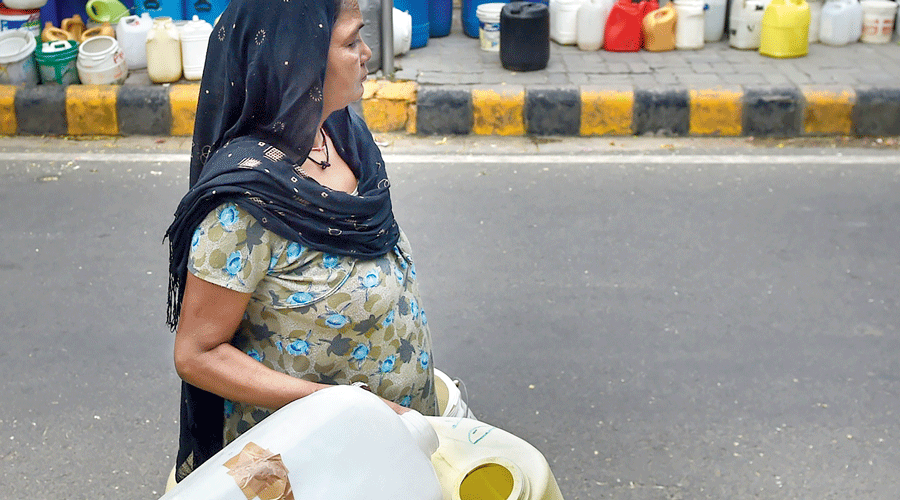Nagendra Yadav has been working shirtless in a stuffy room at a fabric-printing factory near the industrial hub of Ahmedabad for years, but this summer the rising heat drove him to despair.
With May temperatures hovering over 40°C for more than two weeks in the region, and little respite from the heat since, the 32-year-old said his workplace — which has no fans — has become a “furnace”.
“Our endurance is tested everyday,” Yadav told the Thomson Reuters Foundation by phone.
“The factory owner has air-conditioning in his office but there is not even a fan on the factory floor where we work. The shift is for 12 hours. Some of us fall sick, take a day off, lose wages but then come back here. We have no choice.”
Many cities across the country recorded their highest average temperatures this summer here, breaching century-old records, with multiple heat wave alerts announced by local administrations.
With the average global temperature having warmed about 1.2°C above the pre-industrial times, such heat waves in South Asia are 30 times more likely, scientists have said here.
In India, almost 323 million people are at high risk from extreme heat and a lack of cooling equipment, found a report here released last month by Sustainable Energy for All (SEforALL), a UN-backed organisation working on energy access.
Millions of workers like Yadav toil in small manufacturing units functioning out of sheds, cramped factory premises, or old, dilapidated buildings that have poor ventilation, no fans and no drinking-water coolers.
The pandemic’s economic fallout means manufacturers are less likely to invest in heat-beating measures while workers face longer hours to meet targets, putting their health at risk during heat waves and forcing many to take time off, unions say.
Furthermore, rising temperatures are leading to power cuts in industrial hubs — compounding the hardship for many factory workers, according to the Central Industrial Trade Union (CITU).
“When manufacturing stops in a factory and hours of work reduce, wages are cut,” said Arun Mehta, general secretary of Citu in Gujarat state, where Yadav’s factory is located.
“There is fatigue, sickness, no money and despair everywhere.”
Calls for change
The National Disaster Management Authority (NDMA) has categorised 23 of India’s 28 states, along with about 100 cities and districts, as being at risk of suffering extreme heat.
Nineteen states have already developed their own heat action plans and some others are in the process of following suit.
Anup Kumar Srivastava, a senior scientist with the NDMA working on heat waves and drought, said the authority had issued guidelines to help workers — from ensuring availability of drinking water and health facilities to changing working hours.
“The reality of summers is not going to change and the key is to be prepared and effectively manage the situation when temperatures soar,” he said.
Yet unions and activists said most recommendations were commonsense ideas that workers already follow, and criticised a lack of labour inspections to monitor factory conditions.
“We have been consistently raising the issue of lack of a room for workers to rest, water coolers and demanding a break in the afternoons,” said Mahesh Gajera, programme coordinator with Aajeevika Bureau, a collective that supports migrant workers.
“Labour officials and district administration tell us that heat plans are only advisories and cannot be enforced,” he added. “Factory workers are struggling as machines further raise the temperature inside shop floors.”
A 2018 study here by the University of Chicago’s Energy Policy Institute found that hot weather not only meant Indian factory workers were less productive but also more likely to miss work.
A 1°C increase in the 10-day temperature average increased the probability that a manufacturing worker would be absent by as much as 5 per cent, according to the research.
Yadav is part of a workers’ group that is advocating for cooling amenities more vociferously as their conditions worsen.
“Earlier we would bring up these issues occasionally but now we want changes to come soon — we want a cool place to sit and eat lunch, we want fans and we want solutions quickly,” he said.










